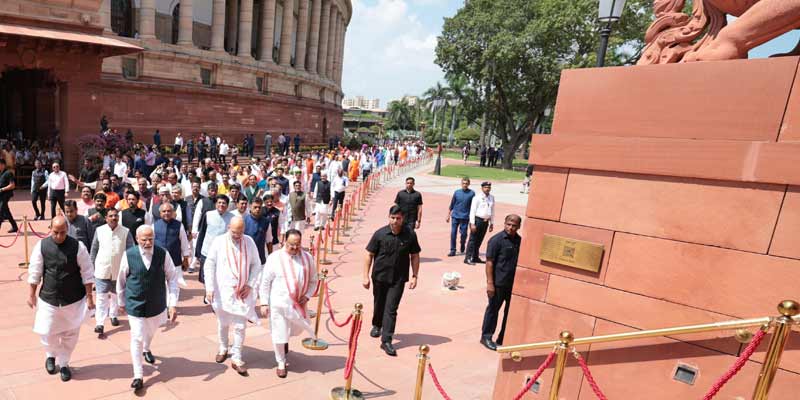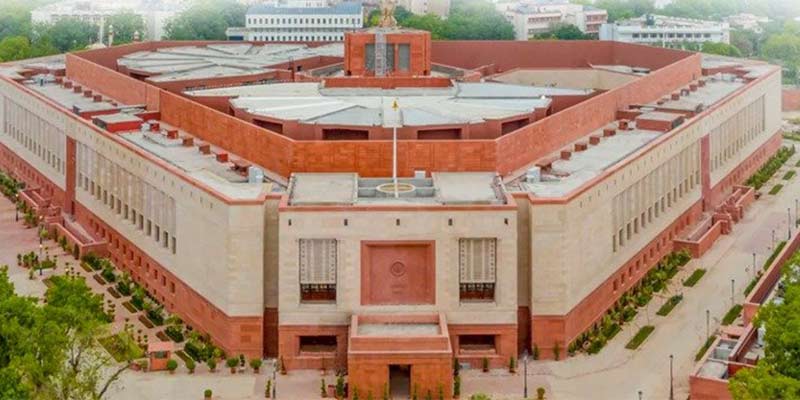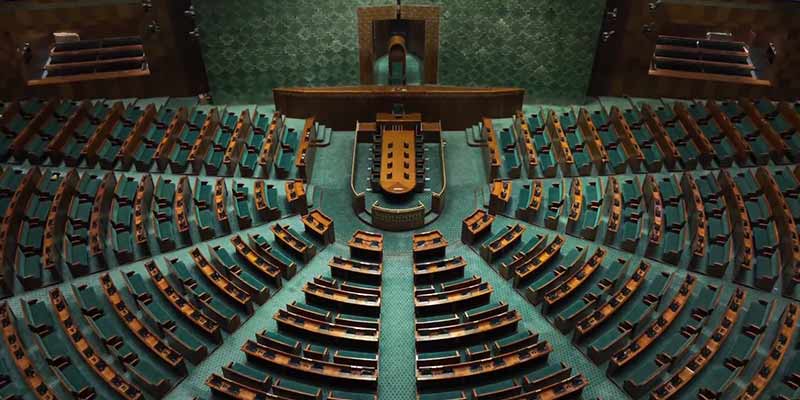- India
- Feb 12
Highlights of 17th Lok Sabha
• The 17th Lok Sabha was adjourned sine die on February 10 bringing the curtains down on the House that witnessed several landmark decisions in the past five years.
• In his valedictory address, Speaker Om Birla said the 17th Lok Sabha had a total of 274 sittings which lasted for 1,354 hours.
• The total work productivity of the 17th Lok Sabha has been around 97 per cent which is the highest among the last five Lok Sabhas, the Speaker said.
• The tenure of the present Lower House is scheduled to end on June 16, before which elections are likely to be held in April-May.
Some quick facts on 17th Lok Sabha:
• In the 2019 Lok Sabha elections, the BJP got an absolute majority, bagging 303 seats, surpassing its 2014 performance when it won 282 seats.
• Narendra Modi was sworn-in as India’s Prime Minister on May 30, 2019, marking the start of his second term in office.
• After Jawaharlal Nehru and Indira Gandhi, Modi is the third Prime Minister — and the first non-Congress one — who has been able to retain power for a second term with full majority in the Lok Sabha.
• The first session of the 17th Lok Sabha was held on June 17, 2019.
• Om Birla, a two-time BJP MP from Rajasthan, was elected Lok Sabha Speaker on June 19, 2019.
• The 17th Lok Sabha passed 222 Bills. During this period 202 bills were introduced and 11 bills were withdrawn by the government.
• On September 19, 2023, the Parliament moved into a new complex. It was a historic switch over from the iconic circular building to the lion-capitol-topped triangular edifice on Central Vista as the home of India’s democracy. The Lok Sabha and the Rajya Sabha met for the first time in the new home on the second day of the five-day special session. The old Parliament building is now known as ‘Samvidhan Sadan’.
• During the 17th Lok Sabha, 4,663 starred questions were listed, out of which 1,116 questions were answered orally. In the same period, 55,889 unstarred questions were also asked which received written answers in the House. All the listed starred questions were answered orally on two occasions during this Lok Sabha.
• A Starred Question is one to which a member desires an oral answer from the minister in the House and is required to be distinguished by him/her with an asterisk. The answer to such a question may be followed by supplementary questions by members.
• An Unstarred Question is not called for oral answer in the House and the written answer to such a question is deemed to have been laid on the Table.
• As many as 729 Private Members’ Bills were introduced in this Lok Sabha.
• During the 17th Lok Sabha, 26,750 papers were laid by Ministers.
• Parliamentary Standing Committees presented a total of 691 reports and more than 69 per cent of Committee recommendations were accepted by the government.
• Maximum use of digital technology is being made in parliamentary work while realising the vision of paperless office in 17th Lok Sabha. Presently more than 97 percent of question notices are being given through electronic medium.
• On December 13, 2023, in a major security breach coinciding with the anniversary of the Parliament attack, two persons jumped into the Lok Sabha chamber from the public gallery during Zero Hour, released yellow smoke from canisters and shouted slogans.
Key Bills passed by the 17th Lok Sabha:
• In July 2019, the Parliament cleared a Bill that made instant triple talaq a criminal offence with provisions of jail term up to three years.
• In August 2019, the Parliament repealed Article 370 and passed the Jammu & Kashmir Reorganisation Bill that led to bifurcation of J&K into two Union Territories — Ladakh and Jammu & Kashmir.
• In December 2019, the Parliament passed the Citizenship (Amendment) Bill, 2019. According to the provisions of the Bill, non-Muslim migrants from Afghanistan, Pakistan and Bangladesh who came to India till 2014 will get Indian citizenship.
• In September 2020, the three laws were passed which were projected by the Centre as major reforms in the agriculture sector that will remove middlemen and allow farmers to sell their produce anywhere in the country. However, in November 2021, the Parliament passed a Bill to repeal the three contentious agricultural laws following protests by farmers for over a year.
• In December 2023, the Parliament approved three new laws — the Bharatiya Nyaya Sanhita, the Bharatiya Nagarik Suraksha Sanhita and the Bharatiya Sakshya Act — to replace the colonial era Indian Penal Code, the Code of Criminal Procedure and the Indian Evidence Act of 1872.
• In September 2023, the Parliament passed the ‘Nari Shakti Vandan Adhiniyam’ to provide 33 per cent reservation to women in the Lok Sabha and state Assemblies. It is officially known as the Constitution (106th Amendment) Act.
Manorama Yearbook app is now available on Google Play Store and iOS App Store



